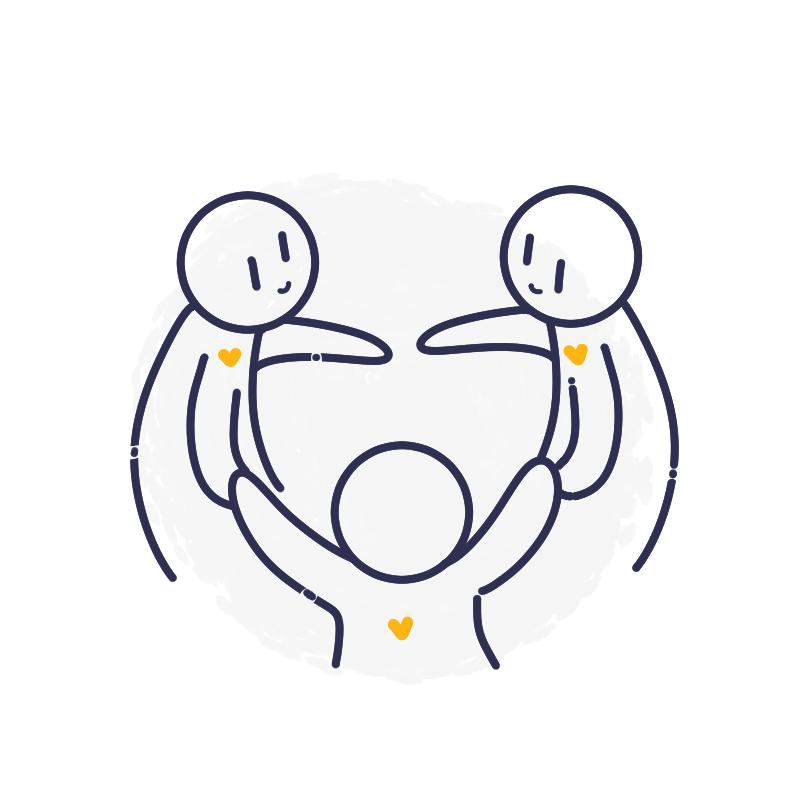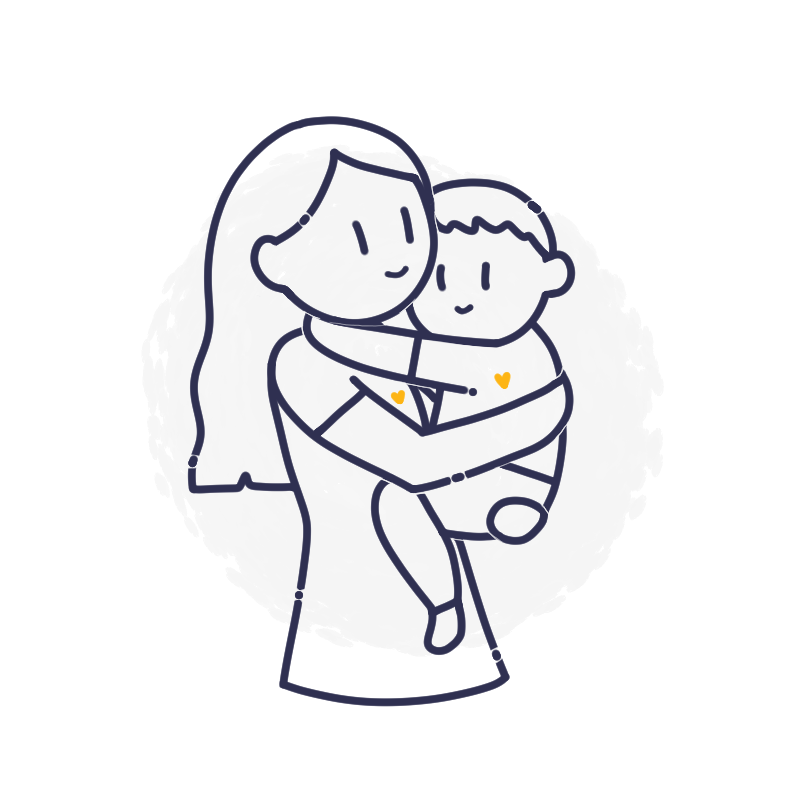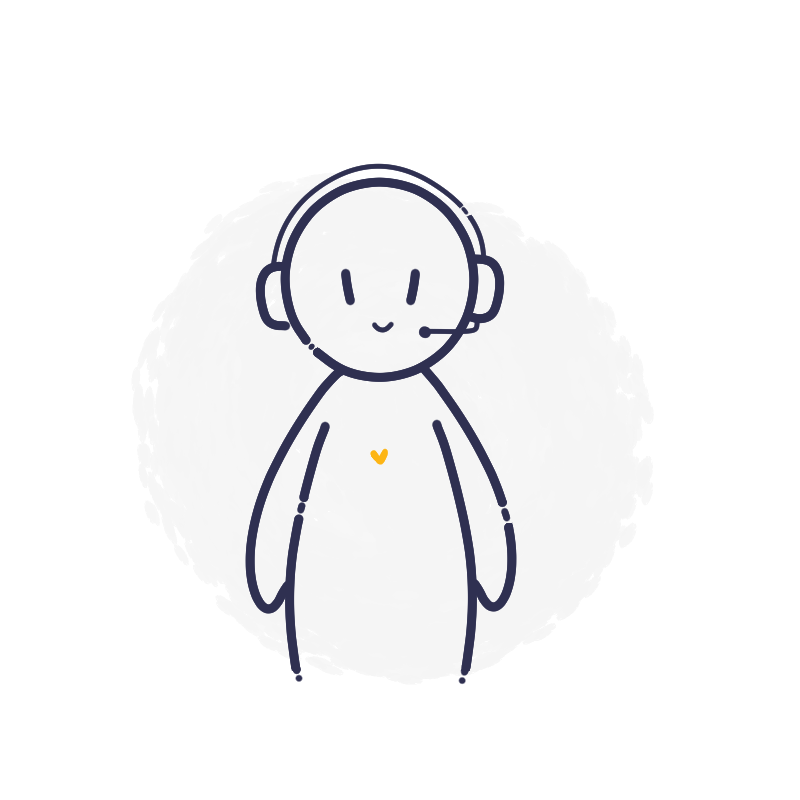Adulthood brings with it a new set of health challenges for people with NF, and again, the move from the routine, structured environment of home, school and paediatric healthcare can feel quite isolating at times.
Whilst many adults may feel good and feel in control of their health, it is important that medical checks are conducted at least annually – even if you do not have any symptoms. These appointments will cover things like routine blood pressure and skin checks; however, it is important that individuals know when to contact their GP and/or NF Specialists in between these annual visits.
If you have been largely reliant on your parents up until now to keep track of your appointments and medical information, you may find our Health Management Kit helpful to keep track of this information. Please contact our support team if you would like a kit sent to you.
Common Health Implications in Adults with NF2
Symptoms of NF2 may become apparent in early adulthood or later in adult life. Your first symptoms may have been ringing in the ears, headaches or balance issues or perhaps some hearing loss. This is because the presence of bilateral vestibular schwannomas is most often the first indication of the condition.
The health implications for you will be dependent upon the way in which you are affected. Talk to your GP and/or specialists about new symptoms or changes in symptoms. You can read more by heading to NF2.
Common Health Implications in Adults with Schwannomatosis
Symptoms usually begin once you’re over the age of 30 and the most common feature of the condition is pain.
As pain is often the only symptom of Schwannomatosis, it is a condition that is difficult to diagnose and for many, it can be several years before the source of the pain is identified. Pain management, including natural therapies, relaxation and meditation is usually required for adults with Schwannomatosis.
Read more about Schwannomatosis

RARE COMPLICATIONS
There are some rare, but serious complications which require immediate medical attention.
All types of NF cause tumours to develop on the nerve cells, so it is important to take persistent pain or changes in your health seriously. Some of the symptoms could be indicators of something significant. For example, hypertension (high blood pressure) should be investigated further to rule out the presence of a pheochromocytoma (adrenal gland tumour). Any new weakness or pain may indicate the development of a MPNST (Malignant Peripheral Nerve Sheath Tumour) which is found in up to 10% of people with NF1 between the ages of 30-50.
As an adult with NF it is important to always err on the side of caution and have regular health checks. Keep track of your symptoms and always mention them, no matter how insignificant or trivial you may initially perceive them to be.

GETTING HELP FOR YOUR NF
It is important to ensure you have a supportive network of people and services around you that you can call on at times of need. This is true of anyone, but even more so when the signs and symptoms of a chronic condition such as NF can make some aspects of life more difficult.
There are lots of support options, and a lot will depend upon your needs and circumstances.
The CTF offers supports not only to children, but to adults and their families impacted by all forms of NF. You can reach out to us for emotional support, as a sounding board for concerns and worries; for information, resources and services, as well as participating in our support programs.
There are several ways you can get involved with the NF community:
- Join our Closed Facebook Group: Children’s Tumour Foundation Australia
- Join one of our virtual chat sessions through NF Connect.
- Come to a camp. Head to NF Community Events for the next one in your local area
- Come along to an information seminar
- Join a webinar
- Find or start a NF Sippers meet-up
- Contact our Support Services Team for individual contacts/peer leaders in your area.
- Participate in one of CTFs major fundraising events. They are fun and you will meet other people your age with NF and also and feel good about raising money for the CTF!
Along with the services we provide, there are other organisations, programs and support, you may be able to tap into such as NDIS, Able Australia, Hearing Australia among many others that you can link with.
If you’d like to have a personalised discussion about services and supports that might be right for you, please contact our Support Services Team here or on 02 9713 6111.

FRIENDSHIPS AND RELATIONSHIPS
Everyone deserves to have friendships and to feel loved in an intimate relationship. But for many people with NF, relationships can be a difficult path to navigate. It is not unusual to feel shy and a little nervous around someone you are interested in, but this can be harder if you feel anxious about your physical appearance or about having to explain what NF is and how it could effect a relationship longer term.
It is normal to wonder about whether you should or should not tell a prospective partner about your condition. It is common to feel insecure about physical differences, whether it is a birth mark, tumour or scar. It is important to move at your own pace and do what makes you feel comfortable. Your NF journey is your story to tell, but it is also a part of who you are, and you should never be ashamed to tell it!
Julia was diagnosed with NF at 20 years old. She assumed NF wouldn’t be much more than a few lumps and coffee-coloured spots; she didn’t know the condition was progressive and unpredictable, or that her child could have NF any worse than she did.
READ JULIA'S STORY
Extending your friendships and relationships requires a commitment to socialisation and a great place to start is by attending a CTF’s event or reaching out to your local peer leader. There are face-to-face meet ups that happen all over Australia, social media support pages and the CTF support staff who are always willing and happy to introduce NF adults to others in their area and help them form invaluable friendships.

Work and study
Our working years take up a considerable proportion of our lives, and given the hours we put in each week, month and year it is important to feel happy and fulfilled in whatever role we choose. But this is another aspect of life NF can impact upon.
While many people will not have their study and work affected by their NF for anyone who experiences symptoms such as learning difficulties, executive functioning (e.g. organisational and planning skills), vision or hearing impairment/loss, mobility difficulties, chronic pain or visible physical difference among others because of the condition there may be a variety of challenges along the road. As everyone’s NF is different so too are their interests, strengths and weaknesses, and so no two people’s study and work journeys will be the same. Here, as it is in your health management it is important to advocate for yourself and your needs.
Talk with your potential employers, bosses, teachers or TAFE/ university disability unit about the things you are good at and the types of strategies that have worked for you in the past that help you overcome the challenges of your condition
There are a number of places you can reach out to for support in study and work. Contact our Support Team for a more personalised discussion. You may, however, look to access services or funding through:
You will find resources that will help you talk about your NF and talk to employers on our Resources for Individuals and Families page.

PLANNING A FAMILY
Deciding to have children is a very personal decision which should be discussed with your partner and health care team. Without intervention there is the real risk of passing the NF gene on. Below are several options you may want to consider.

You need to know that you do have a 50% chance of passing the NF gene onto any or your children.
Deciding to have children is a very personal decision which should be discussed with your partner and health care team. Without intervention (which can often be quite costly), there is the real risk of passing the NF gene on. Below are several options you may want to consider.
Family Planning Options
- Adoption: This removes the risk of baby inheriting the faulty NF gene.
- Donor egg/sperm: Using donor sperm if the father has NF or donor eggs if the mother has NF-this removes the risk of baby inheriting the faulty NF gene.
- Prenatal Diagnosis: involves testing during a pregnancy that has been conceived naturally to determine whether the baby has inherited the faulty NF gene. This testing is invasive and does have risks. Couples are left with the decision to either continue or terminate the pregnancy if the faulty gene is present on testing.
There are two tests available during pregnancy Chorionic Villus Sampling (CVS) and amniocentesis. Both tests require that the family gene fault is known. Non-invasive prenatal testing (NIPT) is not yet available for NF.
More information can be found on Factsheet 26: DIAGNOSTIC TESTS DURING PREGNANCY produced by the Centre for Genetics Education. - Pre-implantation Diagnosis: uses the mother’s egg and the father’s sperm to create an embryo via in-vitro fertilisation (IVF) which is then tested for the gene fault. Those embryos that have not inherited the NF gene fault can then be transferred to the mother’s uterus to develop.
For more information, see Fact Sheet 29: PRE-IMPLANTATION GENETIC DIAGNOSIS (PGD).
IMPORTANT UPDATE: In November 2021, PGD was listed on the PBS as a subsidised test allowing equality for couples with genetic conditions including NF to have the option of not passing on the faulty gene to their child rather than this only being available to couples with financial means.
Should you wish to discuss your family planning options, you may find it beneficial to speak with a trained Genetic Counsellor. Your GP will be able to refer you to your nearest genetics department, alternatively, you can call the on-duty genetic counsellor directly at your local hospital.
Details of the genetics services across Australia can be found on the Centre for Genetics Education website.
Pregnancy
Pregnancy can be a joyous time, but women with NF can sometimes have complications or see changes in their condition.
Some women with NF1 report seeing an increase in the size or number of skin neurofibromas and may suffer from an increased level of itch. It is essential that they are monitored during this time for blood pressure problems, which could indicate an underlying pheochromocytoma or renal artery stenosis. These conditions are rare, but they can be extremely serious if left untreated in a pregnant woman who has NF.
All pregnant women with NF1, NF2 and Schwannomatosis should inform their health care team of the location of any known internal NF-related tumours so that any impact upon both the tumour and pregnancy can be monitored if required.

KEEP IN TOUCH
If you would like any additional information on routine annual checks, possible medical complications, neurofibroma removal or breast screening as well as community connection and support services available, please contact the Support Services Team at the CTF on (02) 9713 6111 or email support@ctf.org.au
.png)